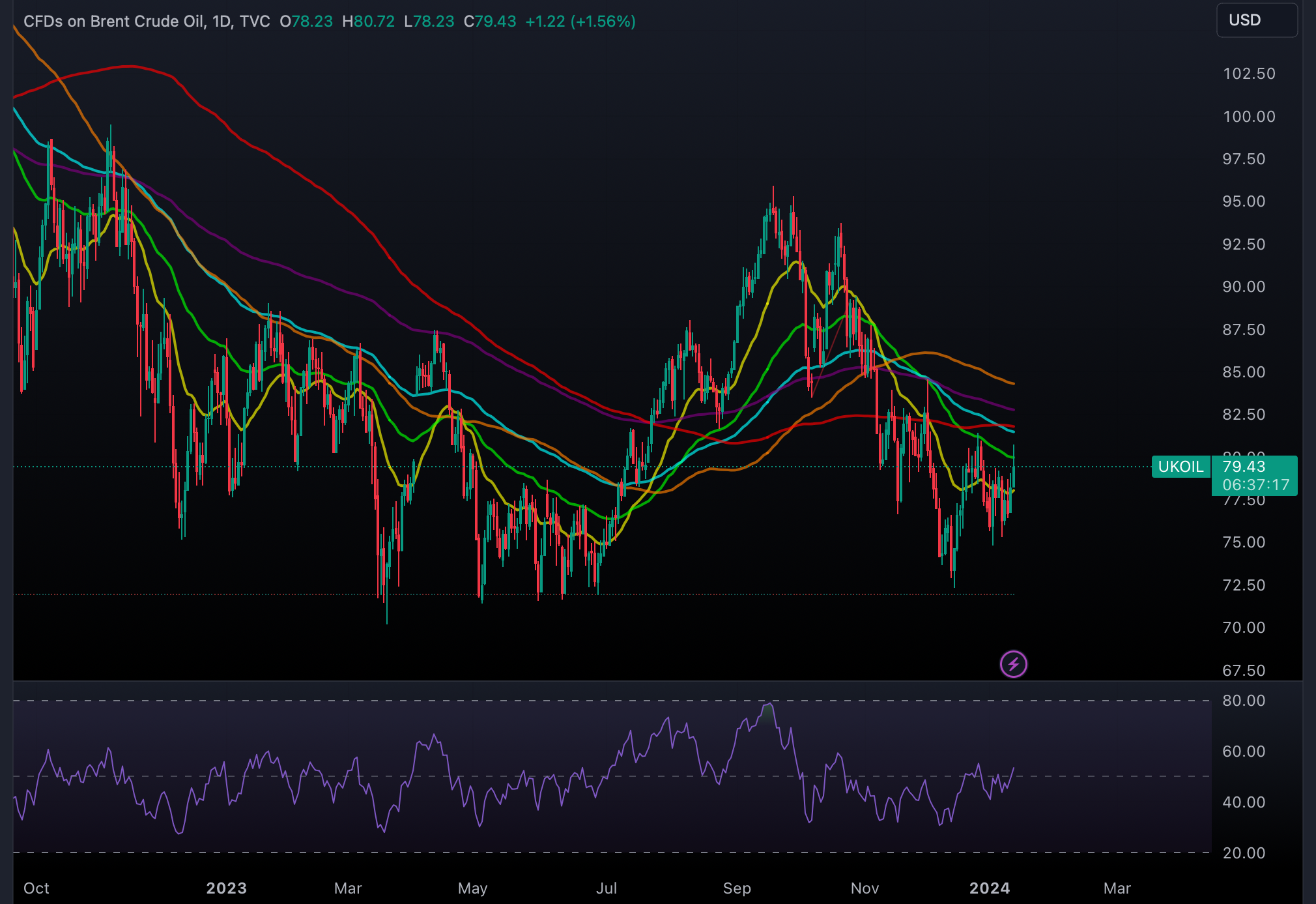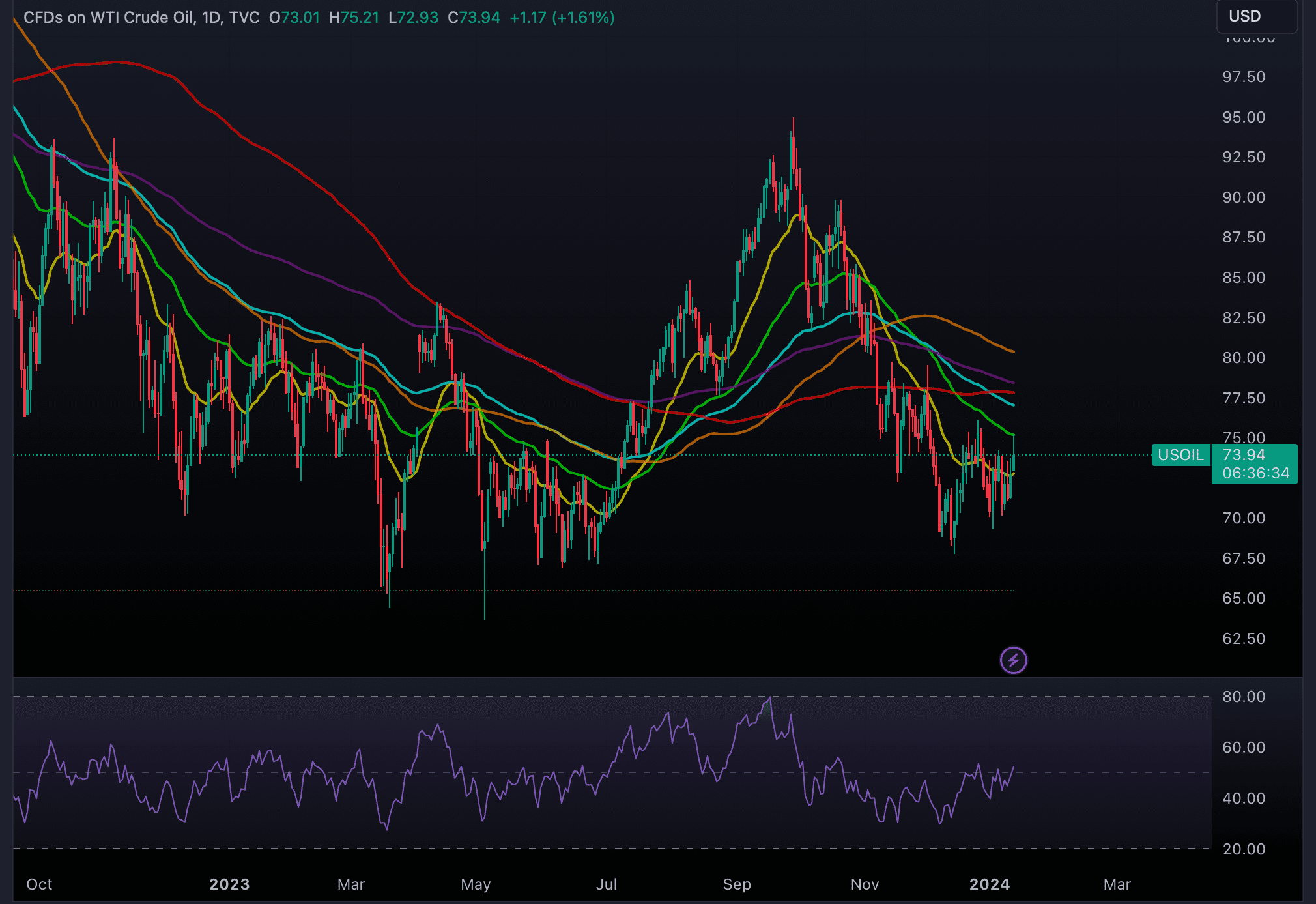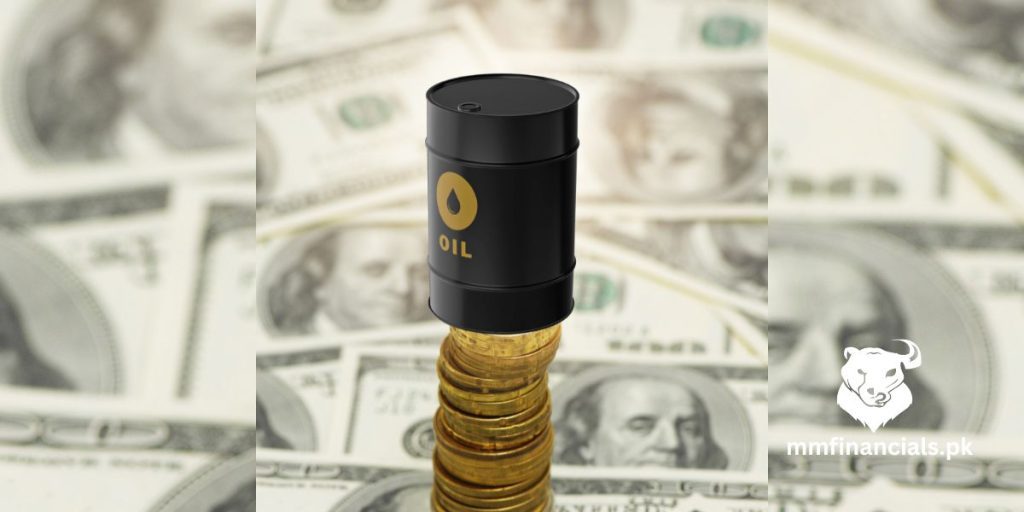In response to overnight air and sea strikes by the United States and Britain on Houthi targets in Yemen, some oil tankers have diverted course from the Red Sea. Witnesses in Yemen confirmed explosions throughout the country.
Brent crude futures rose by $2.21, or 2.9%, reaching $79.62 a barrel at 1350 GMT, while U.S. West Texas Intermediate crude futures climbed $2.13, or 3%, to $74.15. Both benchmarks are set for a second consecutive weekly rise.
CONFLICT ESCALATES
The strikes, retaliating against Houthi attacks on commercial vessels in the Red Sea since October, focused on the Bab al-Mandab Strait to the southwest of the Arabian Peninsula. The escalation raises concerns about the Israel-Hamas conflict expanding into a broader Middle East conflict, potentially impacting oil supplies from the region, including the vital Strait of Hormuz.
Iran seized a tanker carrying Iraqi crude south of the Strait of Hormuz destined for Turkey on Thursday. Energy analysts highlight that a disruption in the Strait of Hormuz flows could have significant global repercussions, impacting oil prices more than the 1970s oil price shocks and the Ukraine war on gas markets.
The president of the United States, Joe Biden, described the strikes in Yemen as a “clear message” that the country and its allies will not put up with attacks against personnel or interference with freedom of navigation. In response, the Houthis declared their determination to keep attacking ships that are travelling in the direction of Israel.
Saudi Arabia, a pivotal player in the global oil market, has issued a call for restraint and emphasized the imperative need to avoid further escalation, all while closely monitoring the unfolding situation. The recent series of attacks by the Houthi rebels in the Red Sea has caused significant disruptions to international commerce along a critical route connecting Europe and Asia, constituting approximately 15% of the world’s shipping traffic. In response to the heightened risks, prominent shipping companies like Maersk are proactively rerouting vessels away from the Red Sea. These companies are also cautioning their customers about the potential for disruptions, acknowledging the need to navigate the situation with vigilance and preparedness.
BIDEN RESPONSE
President Joe Biden stated that these strikes send a clear message that the U.S. and its partners will not tolerate attacks on personnel or threats to freedom of navigation. The Houthis, in control of most of Yemen, reported five fighters killed in 73 airstrikes, pledging retaliation and continued attacks on shipping to support Palestinians against Israel.
Crowds gathered in Sanaa and other cities, denouncing the U.S. and Israel. U.S. Air Force Lieutenant-General Alex Grynkewich reported hitting 60 targets at 16 locations with over 100 precision-guided munitions, aimed at weakening Houthi capabilities. Concerns arose over potential disruptions to oil supplies, with at least four oil tankers diverting from the Red Sea.
The strikes followed months of Houthi raids on ships, prompting a naval task force deployment by the U.S. and its allies. Recent escalations included the sinking of three Houthi boats by U.S. helicopters on New Year’s Eve and the downing of 21 missiles and drones on Tuesday.
Iran, supporting both the Houthis and Hamas militants in Gaza, condemned the U.S. and British attacks. The fear of escalation has led to Houthi attacks affecting global shipping routes and concerns over inflation and supply chain disruptions.
Tesla blamed the turmoil in the Red Sea for the temporary closure of its German plant. There is still uncertainty about how well the strikes will prevent more Houthi attacks. While the United States accused Iran of supplying the Houthi forces with military hardware and intelligence, Saudi Arabia, which is in peace talks with the Houthis, urged moderation.
OIL PRICES
CFDs on WTI Crude Oil posted an intraday high of $80.72 and intraday low of $78.23. Oil is currently trading at $79.45 (8:22pm Friday, 12 January 2024 (GMT+5) Time in Pakistan).

CFDs on Brent Crude oil posted an intraday high of $75.21 and intraday low of $72.93. Oil is currently trading at $73.94 (8:22pm Friday, 12 January 2024 (GMT+5) Time in Pakistan).




















